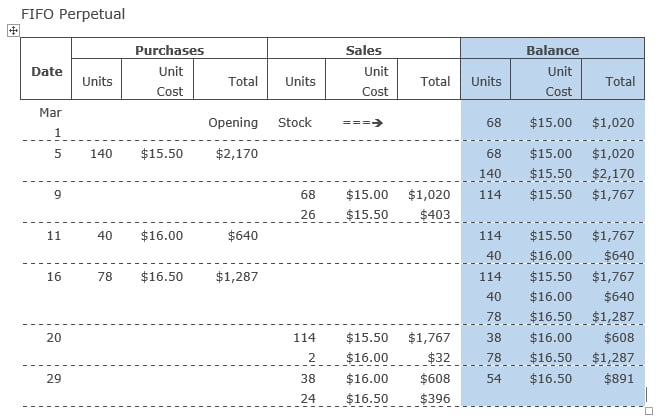hi all!
it might look similar to previous question but actually different..
i'm trying to calculate stock value. for this i want to use "average last purchase value" of item. like
if closing stock is 14 and purchase detail is like this
2014/2/2 15pc @ 38000
2014/2/15 5pc @ 36000
2014/3/1 5pc @ 35000
now i want to calculate it from the last row moving up till we reach the number of closing stock
value of 14pcs is (5 + 5 + 4)@(35000, 36000, 38000)
(i might have failed to explain it more clearly. if so, please ask ur confusion i'll reply back. perhaps that will help clarify it)
thanks in advance.....

 --------------------------------------------
--------------------------------------------